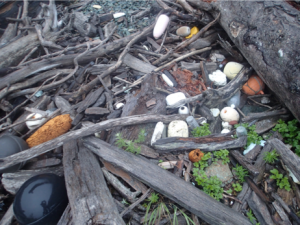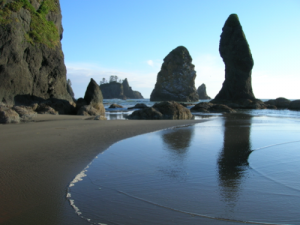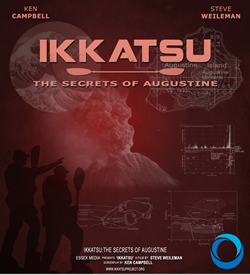Philosophy
It is hard to see how we’re going to get out of this. With the way we have systematically polluted, altered and shamed the planet, it’s hard to see how we could turn it all around now, even if we really wanted to. We have spent decades getting ourselves into this mess; it’s not a sure thing that we’ll be able to get out. Not even close to a sure thing.
But I believe that if there is any hope of strengthening what remains and any chance of reversing our impacts on the natural world (and on ourselves), it comes from knowledge and understanding. People value what they know. The only possible route to long-term environmental health is for people to become cognizant of what part their environment really plays in their individual lives, how it holds a portion of their world in place and why losing any part of the system diminishes the whole.
We don’t know what we don’t know. That simple observation voices the biggest single problem that we as a species have always come up against. We have no idea what the most important thing may be in any given situation because we often cannot conceive of  the critical interlocking relationships that go into creating our world. When it comes to putting it all together, it can feel like trying to assemble a giant jigsaw puzzle, made up of pieces that have no discernable relationship to one another and going about it without the benefit of a picture of what the finished product should look like. And, as if that isn’t hard enough, pieces of the puzzle are periodically removed and we will never really know what they were or where they were intended to fit in with the others.
the critical interlocking relationships that go into creating our world. When it comes to putting it all together, it can feel like trying to assemble a giant jigsaw puzzle, made up of pieces that have no discernable relationship to one another and going about it without the benefit of a picture of what the finished product should look like. And, as if that isn’t hard enough, pieces of the puzzle are periodically removed and we will never really know what they were or where they were intended to fit in with the others.
When a species goes extinct, that’s a puzzle piece that is never going to come back to the table. The result is the same when a pristine shoreline is developed, or a remote island is fouled by an oil spill, or a mountain lake is rendered lifeless by acidic rain falling from toxic clouds. We should not destroy what we do not know how to create. With every piece of the puzzle that disappears, our own existence is diminished.
There are still wild spaces on the map. Not many, and to say that they are completely unaffected by human activity is probably not entirely true, but that is the 21st century world that we are living in. All of us owe it to ourselves and to the planet to try to get a better understanding of what still exists, who we are and how it all fits together. The best way to do this is to go.
If you want to better understand a mountain, you should sleep high on its flanks, melt its snow to find your water, watch the sun rise from its peak. If you are curious about the workings of the sea, spend some time among the white-topped waves in a small boat, and go hand-to-hand with ancient forces that most people have never heard of. To understand the forest, study a tree. Consider how the roots dig through the stones to find their nourishment, how the boughs sway as if communicating with the wind that slips through them. To know where you are going, it is first necessary to see where you have come from, to get face-to-face with the history and the passion that have put you in your position. If it’s knowledge you’re after, attention to detail is necessary. And details are best seen close up, which is why it’s always a good idea to take yourself to where the details live.
There is a chance that, when you come back from wherever it is you go to find your truths, you will need to write something down. For me, the writing is as crucial as the fieldwork itself, and the act of writing it out is an important part of the journey. I write for myself, to put words to ideas and to fit pieces of that big puzzle together.  I write for my son, so that he might someday see what drove me and just maybe use what I have found to help him determine his own course. I write for family and friends, so that they might know me better and understand more about how our personal relationships are bound together. I write for people I have never met, hopeful that something I say might put a spark to their own thoughts of adventure, place and meaning.
I write for my son, so that he might someday see what drove me and just maybe use what I have found to help him determine his own course. I write for family and friends, so that they might know me better and understand more about how our personal relationships are bound together. I write for people I have never met, hopeful that something I say might put a spark to their own thoughts of adventure, place and meaning.
These are deep concepts, but only in comparison to shallow criticism. I am convinced that nothing is unimportant, that there really are no little things. No single piece of the puzzle is any more important that any other and great truths sometimes hide in the most mundane places. Since we value what we know, it is incumbent on us to develop that knowledge to the best of our abilities. Ignorance is a patrician luxury we can no longer afford.










